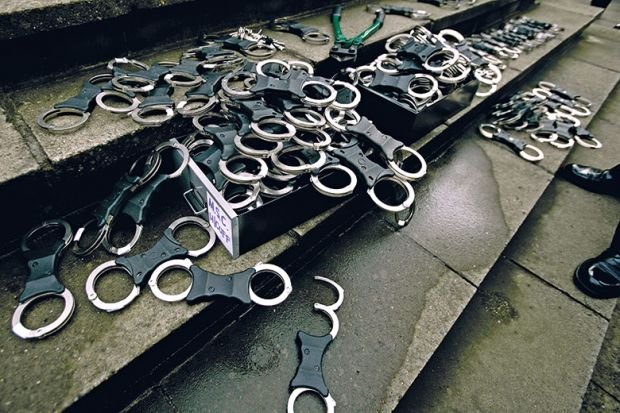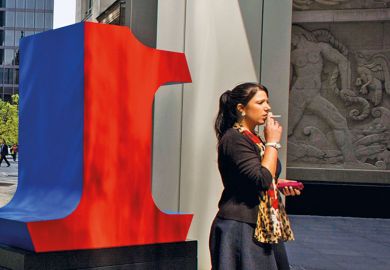Should scientific misconduct be a criminal offence? Or does government involvement in the research process open the door to political meddling and put a brake on innovation?
Amid growing concern about fraud in research and the challenges of reproducing the results of scientific trials, these questions were hotly debated at the World Conference on Research Integrity, held at Vrije Universiteit Amsterdam between 28 and 31 May.
Ian Freckelton, a barrister and professorial fellow of law and psychiatry at the University of Melbourne, said that criminal prosecution has “real potential for deterrence” in research misconduct, although he cautioned that it was not a “panacea”.
“Is criminal prosecution the answer? No, but perhaps it’s part of [the response],” he told the conference. “Many of those prepared to engage in unethical conduct…however much encouragement you give them [not to do it], are going to do it anyway, unless they have every reason to fear that they are going to be caught and the consequences are going to be catastrophic.
“There are real advantages, on occasions, to the deployment of criminal charges, which go to judgment. There’s a declaration by an institute of state…that what they have done is wrong: it names them, it shames them.”
However, Jet Bussemaker, the Dutch minister of education, culture and science, told a separate session that legislating on the academic research process would create “great risks”.
She said that although government could play a role in aiding the “self-reflection of scientists”, she was “very hesitant” to involve it “directly in science”.
“There might be a role [for] government to improve a code of conduct made by scientists,” Dr Bussemaker told delegates. “I’m a minister, but I’ve been a researcher myself. Any direct involvement by a government, by a minister, in science creates great risks.”
Dr Bussemaker made these comments in a question and answer session that came after a keynote speech in which she said that science’s capacity for self-regulation is “one of the jewels in the crown of humanity”.
“It is important that we – as members of government – speak out for free and independent science together with the scientists themselves,” she said. “Any move to restrict this freedom makes us less human.
“It is the responsibility of governments to practise politics based on science. And never to influence science based on politics.”
Speaking in the same session, Robert-Jan Smits, director general for research and innovation at the European Commission, agreed and advocated “much more responsibility on the shoulders” of universities.
While his organisation was aiding the research community by financing the development of training schemes on research integrity and funding research projects examining the factors behind scientific misconduct, Mr Smits was adamant that the Commission would “not transform ourselves into a European science police department”.
“Creating more rules and red tape is not the way forward; we must avoid putting at risk the freedom of science,” he said. “It is for the scientific community to find solutions.”
However, Bertil Andersson, president of Nanyang Technological University, Singapore, said that there were limits to the power of universities’ investigations into research wrongdoing. He detailed numerous examples of misconduct, which occurred when he took over as NTU president, requiring “external expertise”.
“How much can a university do when something is happening?” he asked. “Sometimes, I feel like you have to have private detectives and police coming in to help…[The expertise needed] goes many times beyond the academic competence of the institutions.”
Professor Andersson said that institutions had to be “stringent” in their punishments for research fraud, describing how he had dismissed several academics found guilty of wrongdoing.
When asked if he would seek repayment of research funding from the European Research Council in cases of misconduct, Mr Smits said that there were “penalties and sanctions we will use” if there had been “inappropriate use” of public funding.
Register to continue
Why register?
- Registration is free and only takes a moment
- Once registered, you can read 3 articles a month
- Sign up for our newsletter
Subscribe
Or subscribe for unlimited access to:
- Unlimited access to news, views, insights & reviews
- Digital editions
- Digital access to THE’s university and college rankings analysis
Already registered or a current subscriber?









